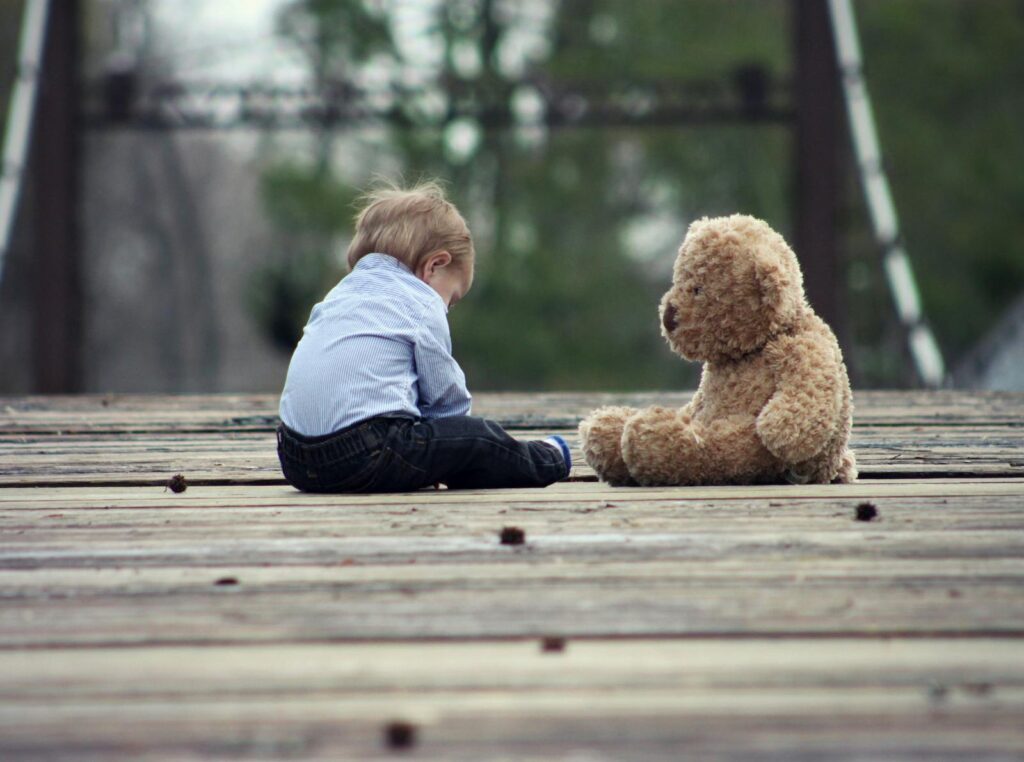Sometimes, those little things that annoy us as adults have roots that go way back. While it’s a universal human experience to have pet peeves – those minor irritations that can inexplicably get under our skin – for some individuals, these seemingly trivial annoyances carry a much deeper significance. They can be profound reminders of experiences that profoundly shaped them during their formative years.
However, for individuals who have navigated challenging developmental experiences, particularly those involving childhood trauma, these everyday frustrations often become much more profound. They function as potent emotional activators, or triggers, which can evoke intense, difficult feelings that are disproportionate to the current situation. When you find yourself highly activated and unable to shake off these feelings, there might be a significant connection to your childhood experiences.
Understanding this connection is crucial, as childhood trauma can significantly affect our development and shape our reactivity to subsequent stressors (Danese & Baldwin, 2017). This foundation helps us comprehend why certain behaviors or situations provoke such strong, visceral reactions within us. We’re about to delve into some of the most common everyday annoyances that may subtly, yet powerfully, illuminate unprocessed experiences from our past, guiding us toward a deeper self-awareness and potential pathways to healing.

1. **People interrupting or talking over you**If you grew up not feeling heard, interruptions can be more than just rude; they can feel profoundly dismissive. This common pet peeve often stems from a deep-seated wound of being pushed aside or treated as if your words do not matter. In childhood, caregivers may have consistently talked over you, ignored your contributions, or invalidated your opinions, creating a lasting impression of insignificance.
As an adult, this habit of being interrupted becomes especially frustrating because it brings back that familiar, unwelcome feeling of being overlooked or ignored. While most people find such behavior annoying due to the disrespect it displays, for those whose childhood wounds are activated, it can lead to extreme upset or even rage. This is because they internalize the behavior, bringing up past feelings of not being seen or heard.
Respectful conversation means a great deal when you’ve had to fight to be heard throughout your life. The inability to let go of the frustration, sometimes leading to confrontational or aggressive responses, clearly indicates that this behavior is activating an inner wound. It highlights a profound desire for your voice to be acknowledged and valued in present-day interactions.
2. **Feeling pressured to “just relax”**People who experienced chaotic childhoods often struggle profoundly with relaxation, primarily because they’ve been conditioned to remain in a constant state of alertness. Growing up in an unpredictable or unsafe environment necessitated a hypervigilant stance, where being “on alert” was a survival mechanism rather than a choice. This constant state of readiness makes genuine relaxation feel alien and even unsafe.
When someone tells you to “just chill,” it can feel deeply invalidating, as if they are missing the entire scope of your lived experience. Such a casual suggestion fails to acknowledge the complex physiological and psychological wiring that has developed over years of navigating uncertainty. It implies that your inability to relax is a simple choice, rather than a deeply ingrained protective response.
True relaxation for trauma survivors takes time, trust, and a sense of profound safety. It’s incredibly difficult to rush into a state of calm if your nervous system has been wired to stay vigilant for potential threats. This pet peeve underscores the immense challenge of unwinding years of learned vigilance and the desire for others to understand the underlying complexities of such a struggle.
3. **Last-minute changes in plans**For those who relied on routines and predictability to feel safe during their upbringing, sudden, last-minute changes can be profoundly unsettling, throwing them off balance completely. In childhoods marked by instability or inconsistency, routines often served as crucial anchors, providing a rare sense of control and security in an otherwise chaotic world. When those anchors are disrupted, it can trigger deep-seated anxieties.
Last-minute shifts in plans can feel not just inconvenient, but fundamentally unsettling, making it exceedingly difficult to simply “go with the flow.” This isn’t merely about a preference for order; it’s about a core need for stability and reliability. The disruption can re-activate the feeling of being unable to predict or control one’s environment, a common experience in traumatic childhoods.
Sticking to plans isn’t just about predictability; for many, it’s about feeling grounded and secure in their present reality. This pet peeve highlights a profound desire for consistency and trustworthiness in relationships and situations, reflecting a longing for the stability that may have been absent during crucial developmental stages.

4. **Loud arguments or raised voices**For individuals who grew up in environments saturated with conflict or aggression, loud voices or arguments are often far more than just unpleasant; they can be deeply unsettling. Even if the current conversation isn’t directed at them, the sheer volume and intensity of raised voices can instantly trigger memories of past tension, fear, or emotional distress. It’s as if their nervous system is automatically transported back to a time when such sounds signaled danger.
The auditory experience itself can be a powerful trigger, activating a primal flight-or-fight response that was honed during a chaotic upbringing. The body remembers the stress and anxiety associated with such sounds, reacting as if the threat is still present. This immediate, visceral reaction can make it challenging to remain present or emotionally regulated when confronted with loud conflict.
Consequently, peaceful communication feels not just preferable, but profoundly comforting and safe, standing in stark contrast to the ingrained stress associated with raised voices. This pet peeve underscores a deep yearning for interpersonal harmony and a predictable, non-threatening communicative environment, a stark reminder of the safety that was often absent in their past.

5. **Being told you’re “too sensitive”**If you grew up feeling that your emotions were routinely dismissed, invalidated, or even punished, being called “too sensitive” as an adult is a swift and painful way to hit a deep nerve. This common pet peeve stems directly from the wound of emotional invalidation, where your genuine feelings were not acknowledged or respected in childhood. You may have learned to suppress or hide your emotions, leading to a profound sense of shame or inadequacy around your natural emotional responses.
This pet peeve serves as a clear indicator of past experiences where your emotional landscape was deemed burdensome or excessive. It reinforces the damaging message that there is something inherently wrong with how you feel, or that your reactions are disproportionate. Such dismissive phrases can re-ignite the painful sense of being misunderstood and unseen, harkening back to a time when your emotional needs were neglected or denied.
Recognizing sensitivity as a strength, rather than a flaw, is a crucial step in healing this wound. It’s incredibly frustrating when people fail to see the depth and richness that sensitivity can bring, or when they attempt to downplay your legitimate feelings. The desire here is for emotional validation and for one’s authentic self to be accepted, without judgment or attempts to diminish one’s true nature.

6. **Unclear expectations or vague instructions**For those who were often left to navigate complex situations largely on their own as children, without clear guidance or consistent direction, a lack of clarity in adulthood can be a significant trigger. People who had to figure things out independently, often through trial and error in potentially high-stakes environments, develop a profound need for explicit instructions and well-defined expectations to feel confident and secure.
When instructions are vague, or expectations are unclear, it can immediately evoke that familiar, unsettling sense of being lost, uncertain, or unsupported, reminiscent of childhood experiences where reliable guidance was absent. This can lead to significant anxiety and self-doubt, as the individual may second-guess their actions or feel perpetually on the brink of making a mistake, mirroring past feelings of isolation or inadequacy.
Conversely, clear expectations provide a vital sense of security, making it easier to thrive without the constant burden of second-guessing oneself. This pet peeve highlights a deep-seated need for structure and explicit communication, which can help to counteract the lingering effects of a childhood where boundaries were porous or responsibilities were disproportionately placed upon them.
7. **Feeling rushed**If your childhood was characterized by constant pressure, a pervasive sense of urgency, or a lack of personal agency, then feeling rushed as an adult can bring up a significant amount of stress and discomfort. This isn’t just a simple annoyance about time management; it’s a powerful reminder of past instances where you felt compelled to speed through tasks or decisions without a genuine sense of control over your own pace or choices.
This pet peeve re-activates a feeling of powerlessness, echoing those times when external demands dictated your rhythm, often without consideration for your personal capacity or well-being. It can trigger anxiety, a sense of panic, or even a feeling of being trapped, as the body and mind recall the chronic stress of living under such relentless pressure in a vulnerable state. The inability to set your own pace feels like a profound infringement on autonomy.
Therefore, the ability to take your time, to approach tasks mindfully and at a comfortable pace, becomes a small but incredibly important comfort and a crucial reclaiming of agency. This highlights a fundamental desire for self-determination and a break from the relentless, external pressures that defined earlier experiences, allowing for a more regulated and peaceful existence.”
Continuing our journey of self-discovery, it becomes clear that many seemingly minor frustrations we encounter daily can serve as powerful indicators of unresolved experiences from our formative years. Recognizing these patterns is not about assigning blame but about fostering deeper self-awareness, which is a crucial step towards healing and cultivating emotional well-being. By understanding the underlying roots of these triggers, we empower ourselves to respond more adaptively in the present and cultivate healthier interpersonal dynamics.
We will now delve into eight additional everyday annoyances that frequently signal unresolved childhood trauma, highlighting pathways to understanding personal boundaries, fostering emotional well-being, and moving towards profound healing. Each of these pet peeves offers a unique lens through which to view past experiences, providing valuable insights into our current emotional landscape.

8. **Being compared to other people**For anyone who dealt with the pervasive presence of comparisons during their childhood, hearing them as an adult can feel profoundly invalidating and deeply unsettling. Whether these comparisons were about academic achievements, physical appearance, social standing, or even personal choices, they often instilled a sense of inadequacy or the constant pressure to measure up. Such experiences in early life can lead to the belief that one’s inherent worth is conditional, dependent on how one stacks up against others, rather than being intrinsic and unconditional.
As adults, these comparisons can re-activate a deep-seated wound, making present-day interactions where comparisons are made particularly uncomfortable. It’s not merely an annoyance; it’s a visceral reminder of feeling judged, scrutinized, and perpetually ‘not enough.’ The desire here is fundamental: people simply want to be appreciated and accepted for who they are, with their unique strengths and vulnerabilities, rather than being constantly measured against external benchmarks that were, perhaps, impossible to meet in childhood.
The frustration this pet peeve evokes underscores a profound longing for authentic recognition and unconditional acceptance. It highlights the lasting impact of a childhood environment where individual identity and inherent value may have been overshadowed by a relentless focus on external validation or competitive achievement. Understanding this trigger can help individuals cultivate self-compassion and seek out relationships that celebrate their genuine self.

9. **Forced hugs or unwanted physical contact**If you grew up in an environment where your personal boundaries, particularly regarding physical touch, were consistently disregarded or where you felt you had little to no control over your own body, then forced physical contact as an adult can be exceptionally uncomfortable. In such childhoods, children may have been compelled to hug relatives, accept unwanted touches, or engage in physical interactions they were not comfortable with, thereby learning that their bodily autonomy was not respected or that their discomfort was secondary to others’ expectations.
As an adult, having complete control over who, when, and how you engage in physical contact becomes a foundational aspect of feeling safe and secure within your own body. This pet peeve is not a mere preference; it is a critical expression of the need for personal sovereignty and the re-establishment of healthy boundaries that may have been violated or ignored during crucial developmental stages. The discomfort is a clear signal that past violations are being re-activated.
Consent and personal space are not just polite considerations; for survivors of such childhood experiences, they are non-negotiable prerequisites for feeling safe and respected in any interaction. This intense reaction highlights the profound importance of bodily autonomy and the deep-seated desire to have one’s physical and emotional limits acknowledged and honored in all relationships.
10. **People not following through**Broken promises, inconsistency, or a general unreliability from significant figures in childhood can create an environment of perpetual uncertainty and anxiety. For those who grew up in such unstable times, where caregivers frequently failed to deliver on commitments or acted inconsistently, their sense of safety and predictability may have been severely compromised. This often led to a child developing a heightened state of vigilance, constantly anticipating disappointment or unexpected shifts.
As adults, this deeply ingrained experience manifests as a profound value placed on trustworthiness and follow-through. When people do not follow through on their commitments or demonstrate inconsistency, it doesn’t just feel like a minor inconvenience; it can actively trigger a re-experiencing of that childhood instability. This can evoke feelings of anxiety, a sense of being let down, or a re-ignition of the belief that one cannot truly rely on others.
Knowing that you can genuinely trust people to do what they say and to be consistent in their actions is incredibly vital for building a sense of stability and security in the present. This pet peeve underscores a fundamental longing for reliability and predictability in relationships, reflecting a core need for the secure attachment and consistent support that may have been conspicuously absent during earlier, formative years.
Understanding these pet peeves as potential indicators of deeper, unresolved childhood experiences marks a significant step towards self-awareness and healing. By recognizing the roots of our powerful reactions, we begin to dismantle old patterns and foster new, healthier responses. This journey towards self-discovery is not about assigning blame, but about cultivating compassion for our past selves and empowering our present selves to build a more regulated and peaceful existence. Remember, recognizing these triggers is the first step; seeking professional support can provide valuable tools and guidance for truly transforming these deeply rooted patterns and fostering profound emotional well-being.








